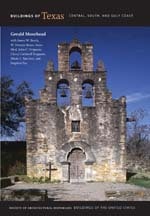Brazoria is a small town on the west bank of the lower Brazos River. It was founded in 1828 by John Austin, one of Stephen F. Austin's initial “Old 300” Anglo-American immigrant settlers, and was county seat first of the Ayuntamiento de Brazoria, established by the legislature of Coahuila y Texas in 1832, and then of Brazoria County following its organization by the Republic of Texas in 1836. Brazoria was typical of small market towns in plantation counties and remained indifferently developed after the Civil War. Although a river port, Brazoria lost out to railroads because of the unreliability of the Brazos River as a commercial waterway. Brazoria forfeited its standing as county seat to the new railroad town of Angleton in 1896, suffering a fate experienced elsewhere along the Texas Gulf Coast as ambitious, railroad-connected “new” towns seized the political privilege from “old” river towns of being county seat.
In 1912 the town moved a mile south of the 1828 townsite to a new site alongside the tracks of the St. Louis, Brownsville and Mexico Railway, built here in 1905. Old Brazoria's monument, J. Riely Gordon's courthouse of 1891, was demolished by the county in 1930. In 1898 the State of Texas established Clemens State Prison Farm on what had been, before the Civil War, Low Wood Plantation, owned by Galveston bankers and sugar planters D. G. and Robert Mills. This was the first of four state prison farms established on former plantations. One hundred years later, Brazoria County still has more state prison institutions than any other county in Texas.
Writing Credits
If SAH Archipedia has been useful to you, please consider supporting it.
SAH Archipedia tells the story of the United States through its buildings, landscapes, and cities. This freely available resource empowers the public with authoritative knowledge that deepens their understanding and appreciation of the built environment. But the Society of Architectural Historians, which created SAH Archipedia with University of Virginia Press, needs your support to maintain the high-caliber research, writing, photography, cartography, editing, design, and programming that make SAH Archipedia a trusted online resource available to all who value the history of place, heritage tourism, and learning.

